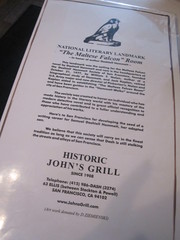
- Find Out More About:
- Acting In Australia
Submitted by: Candace Davies
In your role as a teacher, you are focused not only on delivering important information to your students, but also on demonstrating why that information is meaningful and how they will use it. Mastery and comprehension are, of course, critical to learning, since lessons build upon one another. How do you help your students understand and retain their lessons?
It is has been suggested in studies that students may only retain between 20%-40% of major points in a lesson. However, there are definitely positive things that teachers can introduce in their lessons that will help students to retain more material. One important point to keep in mind, although it may be difficult to put into effect, is to try to avoid introducing too many new concepts and information all at once. Although there are strict deadlines that teachers have to stick to concerning curriculum, it can be overwhelming for students to be subjected to too much information.
By presenting less new information in a lesson, you will have the opportunity to provide students with more time, more examples, more repetition, and more reflection on the topics you cover. When you do introduce a new topic, a great method is to relate an anecdote or discuss a relevant current event to illustrate key concepts. Students are very receptive to this technique, and you will typically have no trouble holding their interest when you segue into the lesson, thus increasing the likelihood that they will remember and retain the material.
Don’t simply lecture to your students; engage them in an interactive learning session. Having students experience the lesson concepts in hands-on activities will help them to retain the material. Find out what they think about the subject, and let them lead the discussion. By relating the material to concepts that students can relate to, they will be better able to understand the material being presented. Have students brainstorm their own examples of the concept, and help them develop analytical skills to break down the material into bite-sized pieces they can master one piece at a time.
For younger grade levels, songs and music can be used to improve retention through fun and interactive repetition. For the higher grade levels, group problem-solving activities are effective in engaging students in the material. Group collaboration also teaches them skills for working together as a team.
Your prospective employer will be very interested in learning about the tools and techniques you use to help your students comprehend and retain the material you are teaching them. If you use some particularly unique visual aids, hands-on activities, or other tools, create a portfolio you can share during the interview. Even better, have a colleague videotape you leading your class in a lesson, then create a DVD presentation you can leave behind at the conclusion of the interview. It will leave a lasting impression!
If you’d like some help fleshing out these kinds of details on your resume, call us at A+ Resumes for Teachers, because we re the experts in writing resumes and cover letters for teachers!
About the Author: Candace Davies is the owner of A+ Resumes for Teachers and is a Certified Resume Writer and Interview Coach Strategist who is dedicated to assisting teachers, administrators and other professionals within the education sector. Let her help you land your dream job:
resumes-for-teachers.com
.
Source:
isnare.com
Permanent Link:
isnare.com/?aid=999288&ca=Education


